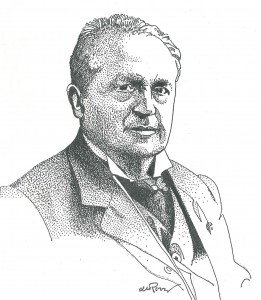John Witvliet, a scholar from the Calvin Institute of Christian Worship, presented an excellent paper entitled, “Protestant Suspicion of Liturgical Form: The Curious Case of Abraham Kuyper.” In his presentation, Witvliet explored Kuyper’s oft-changing and ever-evolving views on liturgical worship as a microcosm for evangelical angst between form and sincerity. A brief survey of Kuyper’s works and lectures revealed his back and forth views on the values and fears of formal liturgies in worship. Notice John H. Wood’s periodization of Kuyper’s views (from Witvliet’s presentation):
– 1864, Early Ministry – Liturgy /Forms as disposable “Husk”
– 1865-67, Incarnational Ecclesiology – L/F as indispensable
– 1870, Sacramental Ecclesiology – L/T as indispensable “bank of river,” “body to the soul”
– 1886, Believer’s Church Ecclesiology – L/T as “clothes” which dress the “body”
Kuyper states:
“Where form rules over spirit, spirituality must object and demand that spirit rule over form. Spirituality will walk in the right path when it allows the spirit to govern form, so that it is true to the spirit, accommodates the spirit, and serves the spirit as an instrument. But spirituality goes astray when it declares that form does not matter and thereby either destroys it or allows it to degenerate.” – Our Worship from Implications of Public Confession
Witvliet effectively showed that Kuyper’s own view alternated between two tropes; sincerity and ritual. For example, Kuyper followed earlier non-conformist’s reaction against the Anglican primers but allowed examples and prayer patterns to be implemented (especially for pedagogical purposes), though insisting that set prayers be spoken “imploringly and movingly.” He saw dangers in both insincere form and sincere formlessness.
Notice Kuyper’s thoughts on the prayer of confession to begin a service:
“Our Reformation fathers were wise in demanding that at least once a week, this matter [confession of sin], so important to the soul, would not be left to subjective feelings, but rather would be taken hold of by a power outside ourselves, that is, by God himself, who through the word of his servant would proclaim God’s holy Word of absolution to the congregation.” – Our Worship from Implications of Public Confession
Witvliet concluded with 4 reflections:
- A simplistic “ritual/sincerity” binary is not sufficient for a healthy theology of liturgical participation or healthy pastoral ministry.
- Evangelical suspicion of set of prayer is often set aside when those prayers are sung in the form of hymns or worship songs. This irony or complementarity is worthy of more reflection.
- Evangelical historians could benefit not only by studying responses to Anglicans but also to Quakers.
- The rejection of liturgical form has often been viewed as the ultimate outworking on potent individualism.
He calls us to a “life in the middle.”
In my opinion, Kuyper’s “life in the middle” teaches four valuable lessons.
- Worship is never isolated; it is never vacuous. Worship must always take a form. Like theology, it can never be completely removed from its own history. Liturgy in worship is simply ecclesiology recognizing history. It is revolting against the tyranny of the now and emancipating the soul from the slavery of self.
- Form does not mean rejection of freedom. It is freedom within reason. Even jazz musicians warm up with scales. To say that liturgy and sincerity are opposites is to misunderstand them both.
- Unfortunately, evangelicalism’s reaction to form has taken its own strange and twisted shape. It’s somewhat like a meeting of anarchists: after a while, someone takes control. Worship has become reactionary, the pendulum swinging from one side to the other, culture to culture, shape to shape. As Kuyper ironically adapted Hegelian dialectics in his political philosophy of The Anti Revolutionary Party, evangelicalism has come to a full synthesis with culture. Liturgy and form help to prevent that. It is the democracy of the dead; the collection of time.
- Life in the middle is only reflective of one’s methodology. The Regulative Principle of Scripture walks this line perfectly. One sees the Psalms and prayer as not only beautiful examples, but beautiful form.
